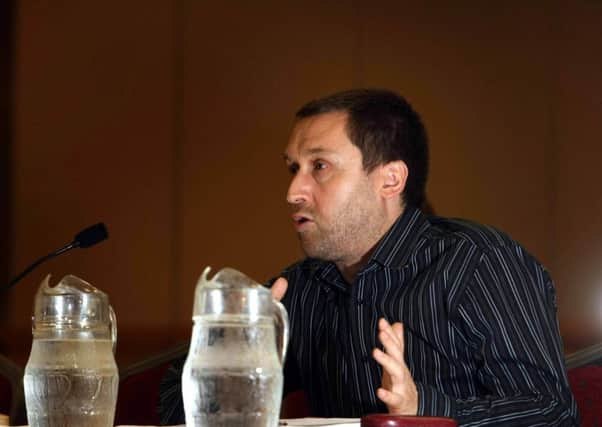Stormont's incredible Kafkaesque reply to questions about spin doctor


The Executive Office (TEO) made the claim in response to a News Letter Freedom of Information request for material relating to the appointment and role of former Nolan Show editor David Gordon, who was appointed Executive press secretary almost three months ago.
The Assembly has similarly hit a brick wall in attempting to extract information which is routinely released when it relates to civil servants or ministers.
Advertisement
Hide AdAdvertisement
Hide AdLast month, TEO responded to a request from Alliance MLA Stephen Farry for a copy of the press secretary’s code of conduct. Arlene Foster and Martin McGuinness responded: “The code of conduct in relation to the Executive press secretary is contained within the terms and conditions of the appointment.”
However, in a Kafkaesque situation the same ministers had the previous month told UUP MLA Philip Smith that Mr Gordon’s “terms and conditions of appointment are a confidential matter”.
Now, TEO has refused to release the information to the News Letter, citing concerns for the privacy of the man whose role is to be the voice of the First and deputy First Ministers.
Under the Freedom of Information Act, this newspaper requested a copy of “all material relating to the role of Executive Press Secretary” and specifically asked for “a copy of all of the terms and conditions by which the Press Secretary will operate and by which he will be bound”.
Advertisement
Hide AdAdvertisement
Hide AdStormont Castle responded to that September request yesterday. However, most of the relevant information was withheld, a decision which we have appealed. In the FoI response, TEO argued that “an individual’s contract and their terms and conditions of appointment are a confidential matter” and were therefore covered by confidentiality exemptions in the FoI Act.
Although the News Letter requested “all information” about the decision to create the role, the little material which has been released only starts on the day that Mr Gordon was formally offered the job – 9 September.
The first piece of information released comes after the law had been secretly changed – as this newspaper revealed days after Mr Gordon’s appointment – under Royal Prerogative powers, something which allowed Mrs Foster and Mr McGuinness to bypass normal fair employment law to appoint the individual of their choice.
The News Letter asked Mr Gordon whether – given that as a journalist he was a firm public proponent of open government in general, and the Freedom of Information Act in particular – he had any objection to the material being released. At the time of going to press, there had been no response.
Advertisement
Hide AdAdvertisement
Hide AdIn 2010, when Mr Gordon was at the Belfast Telegraph, he wrote in a typically hard-hitting piece: “Having strict rules on standards in public life does not stop politicians misbehaving. But it can at least send out the message that ethics are important.”
In response to the FoI request, TEO did, however, release letters which it received from two public employment watchdogs. The day after Mr Gordon’s appointment, Brian Rowntree, chairman of the Civil Service Commissioners, wrote to the head of the civil service, Sir Malcolm McKibbin, asking for a “personal assurance that this appointment has been made and managed in an appropriate manner”.
Two days later, the Commissioner for Public Appointments, Judena Leslie, wrote to Sir Malcolm. However, Ms Leslie’s letter wrongly claimed that the press release announcing Mr Gordon’s appointment claimed that it had been “made under the rules for public appointments”.